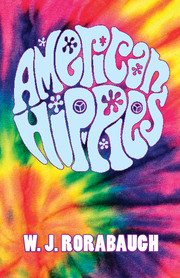5 - Communes
Published online by Cambridge University Press: 05 June 2015
Summary
Hippies commonly expressed a yearning for community. In part this was a desire among longhairs to live among the like-minded, distance the self from the mainstream, and avoid harassment by those who disapproved of the counterculture lifestyle with its emphasis upon drugs, easy sex, and rock music. But the search for community also expressed a more generalized youthful longing for togetherness as well as a correct perception that there was little sense of community among the suburban middle-class families from which the hippies emerged. After World War II the parental generation had embraced the nuclear family with a vengeance, abandoned older ethnic relatives, and fled familiar neighborhoods for the sterile suburbs dominated by the anonymity of shopping malls and rooftop television antennas. While the crime-free suburbs offered broad lawns and fresh air for young children, they bored most teens. “Middle-class living rooms are funeral parlors,” said one freak. Fleeing to the Haight, the East Village, or other such locales was about escaping the suburbs as much as anything else.
By the mid-1960s large numbers of hippies were finding community in shared housing in the neighborhoods where they lived. At a time when the prosperous white working class was leaving cities in record numbers, hippies shared the rent for houses or large apartments in marginal neighborhoods that were often close to African American ghettoes. In today's terms, rents were incredibly low for inner-city neighborhoods. Gentrification was nonexistent, utilities were cheap, and food cost little. Communal housing allowed for sexual experimentation, although group marriages were less common than was rumored in mainstream society. Landlords who might not have rented to an unmarried couple, however, could be persuaded to rent to a group of young people. Who slept with whom was hard to tell from the outside. Even without orgies, this lifestyle promoted psychedelic trips and philosophical discussions.
- Type
- Chapter
- Information
- American Hippies , pp. 167 - 204Publisher: Cambridge University PressPrint publication year: 2015



